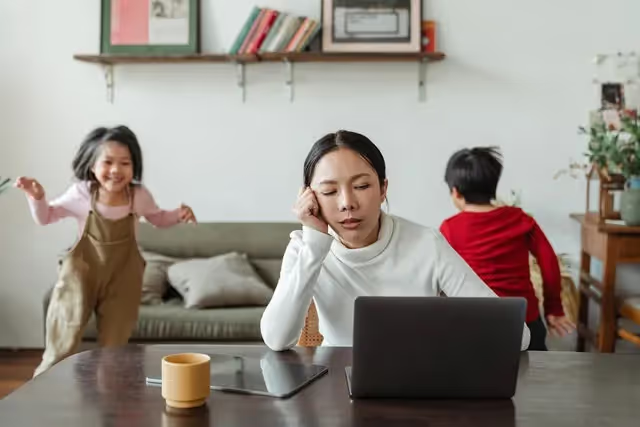How does postpartum anxiety differ from postpartum depression? Postpartum anxiety and postpartum depression are two common mental health issues that can...

How does postpartum anxiety differ from postpartum depression?
Postpartum anxiety and postpartum depression are two common mental health issues that can affect women after they give birth.
These conditions aren't always the same—postpartum anxiety is a type of generalized anxiety disorder, while postpartum depression is a major depressive disorder—but they can have similar symptoms and often go hand in hand.
Both postpartum anxiety and postpartum depression are treatable, but it's important to know how to tell if you're experiencing one or both of these conditions so you can get the help you need.
There is a whole rave about postpartum depression and while the media attention is admirable, there's a little less fanfare about the other side of the coin, postpartum anxiety.
The question is what is postpartum anxiety?
Postpartum anxiety is an emotional disorder that affects new mothers in the weeks and months after childbirth. It causes feelings of extreme worry, nervousness, fear, or panic when there is no real danger present. Postpartum anxiety causes mothers to worry excessively over their newborns. This type of anxiety goes way beyond the normal type of worries that mothers have about their children. Women who go through postpartum anxiety constantly worry about little things like whether their babies are breathing properly or eating well. These thoughts consume your entire being and you rarely have the opportunity to think about something else.
In some cases, mothers develop OCD after childbirth because of the intense need to constantly take care of their child. If you're experiencing this type of anxiety, you'll constantly be in a state of unrest and dissatisfaction over how you care for your child. It sometimes makes women overly protective of their children and in worst-case scenarios, they don't allow other people to get close to their children. You may be asking, 'how do I know that I have postpartum anxiety?' Postpartum anxiety can be experienced by women who've had a smooth pregnancy and delivery, as well as by those who've had complications. However, it's most common among women who have experienced complications such as premature delivery or preeclampsia (high blood pressure during pregnancy).
Postpartum anxiety can also cause physical symptoms such as:
Apart from the physical signs of postpartum anxiety, you could also note that the person's emotions will become so disrupted that they;
Having a kid is not a child's play and taking care of children has never been easy. When you get pregnant, your hormones become a very active part of your life, and most times, they dictate how act if you can't control them. Hormones like oxytocin cause a mother and her baby to bond and when postpartum anxiety kicks in, the function of oxytocin may turn into something fatal. This hormone's function is meant for good, but it can easily turn ugly and cause the mother to obsess over the baby if she has postpartum anxiety.
While hormones play a huge role in causing postpartum anxiety, other external factors cause it;

Postpartum anxiety brings about irritation and worries over the care of a newborn child and it makes mothers excessively protective over their babies. However, postpartum depression on the other hand causes women to become depressed and in worst-case scenarios, they neglect to take care of their kids and themselves as well. Postpartum depression has gained a lot of media attention, unlike postpartum anxiety which is still in the process of being properly identified.
It's not clear what causes postpartum anxiety, but it's thought to be related to hormones, genetics, and stress. Women who have experienced postpartum anxiety in the past are more likely to develop it again. It is easy to wave off postpartum anxiety as motherly care of newborns, but it is just as dangerous as any other anxiety out there. If you notice any symptoms of postpartum anxiety after childbirth; then seek help because there's no shame in that.
https://www.healthline.com/health/pregnancy/postpartum-anxiety#causes
https://www.parents.com/parenting/moms/healthy-mom/the-other-postpartum-problem-anxiety/
https://www.eurekalert.org/news-releases/809652
https://my.clevelandclinic.org/health/diseases/22693-postpartum-anxiety
Postpartum depression usually arises from a mix of factors rather than a single cause: the sudden drop in hormones like estrogen and progesterone after childbirth, a personal history of depression or other mental-health conditions, and major life stressors. Physical and emotional exhaustion from childbirth and caring for a newborn, chronic sleep deprivation, and limited support from a partner, family, or friends can all increase the risk. Overcomers Counseling provides compassionate, practical care to help new parents understand these contributors and find steady, evidence-based support as they recover.